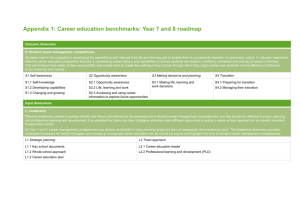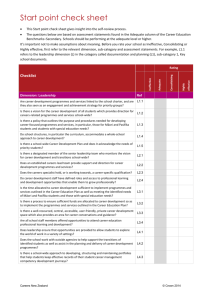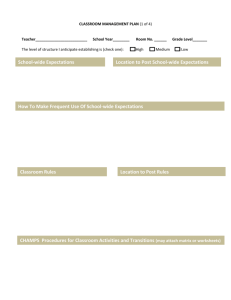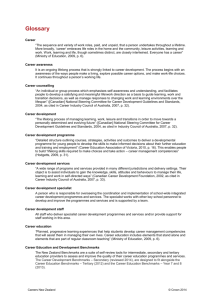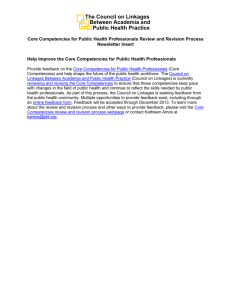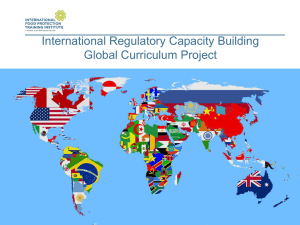the roadmap chart
advertisement
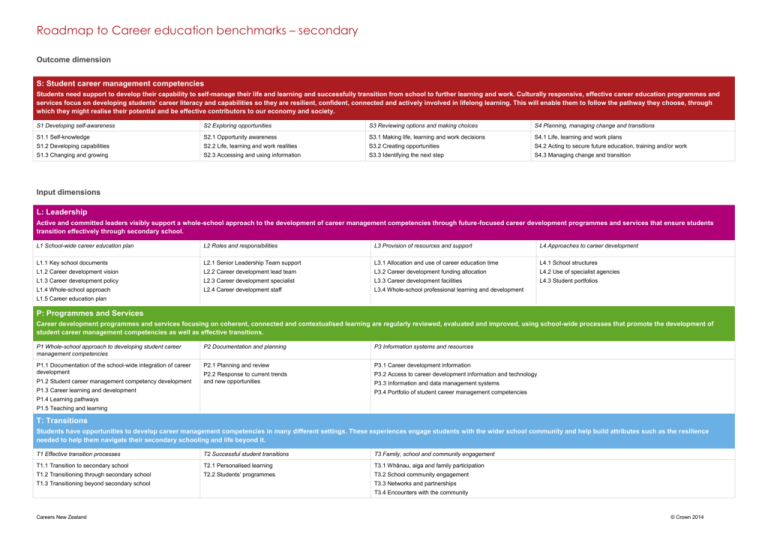
Roadmap to Career education benchmarks – secondary Outcome dimension S: Student career management competencies Students need support to develop their capability to self-manage their life and learning and successfully transition from school to further learning and work. Culturally responsive, effective career education programmes and services focus on developing students’ career literacy and capabilities so they are resilient, confident, connected and actively involved in lifelong learning. This will enable them to follow the pathway they choose, through which they might realise their potential and be effective contributors to our economy and society. S1 Developing self-awareness S2 Exploring opportunities S3 Reviewing options and making choices S4 Planning, managing change and transitions S1.1 Self-knowledge S2.1 Opportunity awareness S3.1 Making life, learning and work decisions S4.1 Life, learning and work plans S1.2 Developing capabilities S2.2 Life, learning and work realities S3.2 Creating opportunities S4.2 Acting to secure future education, training and/or work S1.3 Changing and growing S2.3 Accessing and using information S3.3 Identifying the next step S4.3 Managing change and transition Input dimensions L: Leadership Active and committed leaders visibly support a whole-school approach to the development of career management competencies through future-focused career development programmes and services that ensure students transition effectively through secondary school. L1 School-wide career education plan L2 Roles and responsibilities L3 Provision of resources and support L4.Approaches to career development L1.1 Key school documents L2.1 Senior Leadership Team support L3.1 Allocation and use of career education time L4.1 School structures L1.2 Career development vision L2.2 Career development lead team L3.2 Career development funding allocation L4.2 Use of specialist agencies L1.3 Career development policy L2.3 Career development specialist L3.3 Career development facilities L4.3 Student portfolios L1.4 Whole-school approach L2.4 Career development staff L3.4 Whole-school professional learning and development L1.5 Career education plan P: Programmes and Services Career development programmes and services focusing on coherent, connected and contextualised learning are regularly reviewed, evaluated and improved, using school-wide processes that promote the development of student career management competencies as well as effective transitions. P1 Whole-school approach to developing student career management competencies P2 Documentation and planning P3 Information systems and resources P1.1 Documentation of the school-wide integration of career development P2.1 Planning and review P3.1 Career development information P2.2 Response to current trends and new opportunities P3.2 Access to career development information and technology P1.2 Student career management competency development P1.3 Career learning and development P3.3 Information and data management systems P3.4 Portfolio of student career management competencies P1.4 Learning pathways P1.5 Teaching and learning T: Transitions Students have opportunities to develop career management competencies in many different settings. These experiences engage students with the wider school community and help build attributes such as the resilience needed to help them navigate their secondary schooling and life beyond it. T1 Effective transition processes T2 Successful student transitions T3 Family, school and community engagement T1.1 Transition to secondary school T2.1 Personalised learning T3.1 Whānau, aiga and family participation T1.2 Transitioning through secondary school T2.2 Students’ programmes T3.2 School community engagement T1.3 Transitioning beyond secondary school T3.3 Networks and partnerships T3.4 Encounters with the community Careers New Zealand © Crown 2014 Roadmap to Career education benchmarks – secondary Careers New Zealand © Crown 2014
